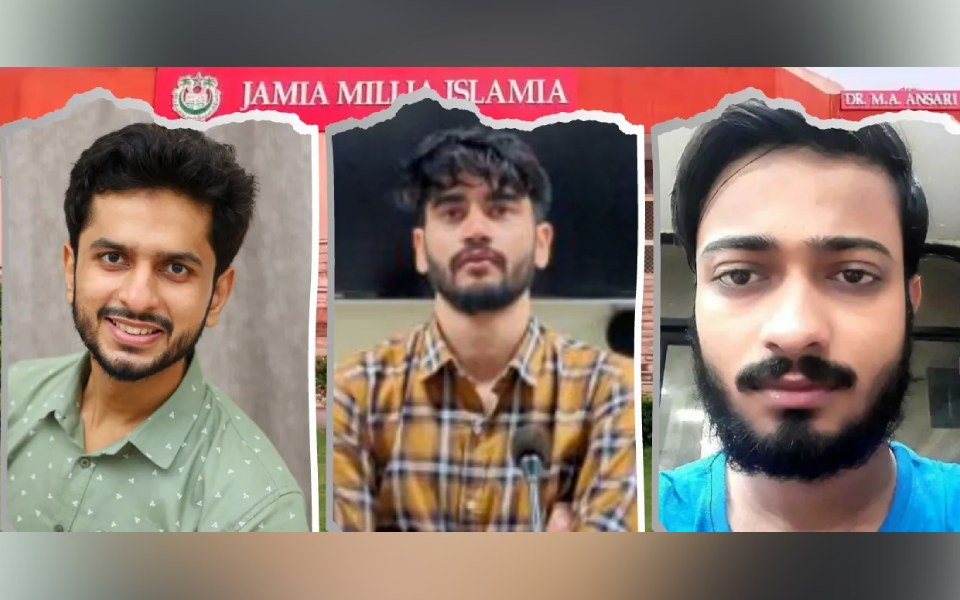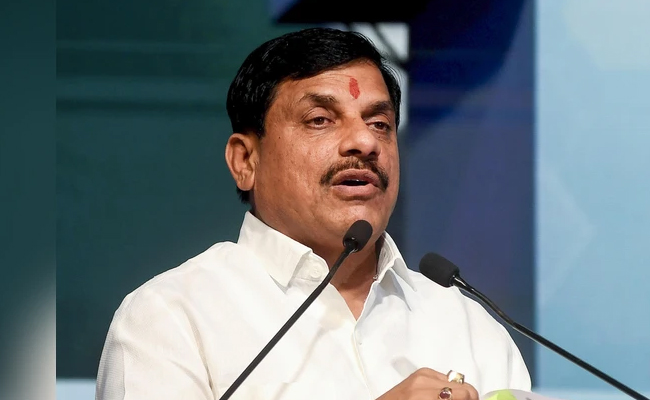New Delhi: Three former students of Jamia Millia Islamia (JMI) played a significant role in India's historic Chandrayaan-3 lunar mission, conducted by the Indian Space Research Organisation (ISRO).
The alumni, namely Amit Kumar Bhardwaj, Mohd Kashif, and Areeb Ahmad, were part of the team behind this monumental achievement.
JMI expressed its delight at the contribution of its alumni and emphasized the sense of pride it brings to the university community. "With this historic success, India has become the first country to land near the Moon’s South Pole," said the JMI administration.
All three individuals—Amit Kumar Bhardwaj, Mohd Kashif, and Areeb Ahmad—were students of the Department of Mechanical Engineering in the Faculty of Engineering and Technology at JMI. They completed their B.Tech degrees in 2019.
The JMI administration revealed that Amit, Kashif, and Areeb successfully cleared ISRO’s Centralised Recruitment Board-2019 Exam for the position of Scientist/Engineer. The results were announced by ISRO in September 2021, with Kashif securing the top rank in the exam. All three were selected for the role of Scientist/Engineer ‘SC’-Mechanical (Post No. BE002).
Expressing her joy, JMI Vice Chancellor Prof. Najma Akhtar congratulated Prime Minister Narendra Modi for the mission's success. She remarked that the students' involvement in this historic mission is a moment of national celebration and pride for the university. Prof. Akhtar highlighted that these alumni have become role models for current students and their achievements will inspire others to strive for excellence.
The university organized special arrangements for live telecasts of the soft landing of Chandrayaan-3's Vikram Lander on campus.
Let the Truth be known. If you read VB and like VB, please be a VB Supporter and Help us deliver the Truth to one and all.
Vadodara (PTI): India batting stalwart Virat Kohli on Sunday became the fastest player to reach 28,000 runs across formats in international cricket and the second most prolific scorer behind Sachin Tendulkar during the first ODI against New Zealand here.
Playing in his 624th innings, Kohli got to the milestone by hitting a four off New Zealand leg-spinner Adithya Ashok. Tendulkar had reached the landmark during his 644th innings, while Sri Lankan legend Kumar Sangakkara, only the third player in the 28000-run club, crossed the feat in his 666th innings.
The 37-year-old Kohli had come into the match with 27975 runs across formats in international cricket. Tendulkar scored 34357 runs from 782 innings, while Sangakkara made 28016 runs from 666 innings.
In February 2023, Kohli had become the fastest batter to reach 25,000 runs, achieving the mark in 549 innings, 28 innings quicker than Tendulkar.
In October 2023, Kohli went past 26,000 runs as the quickest to the landmark. A year later, in September 2024, he reached 27,000 runs in his 594th innings.





